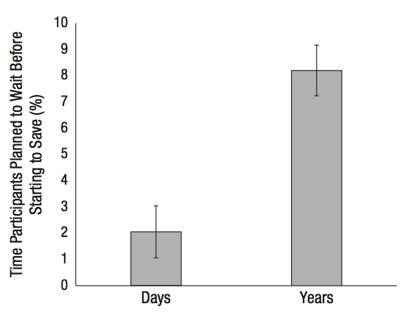
Sergey Paranchuk/Shutterstock.com
The Mechanics of Preventing Procrastination
A new study finds that thinking about far-off events in terms of days, rather than years, makes people get started sooner.
Procrastination is, in essence, stealing from yourself. The reason goals are so hard to reach, many psychologists think, is because each person believes they are really two people: Present Me and Future Me. And to most people, Future Me ismuch less important than Present Me. Present Me is the CEO of Me Corp, while Future Me is a lowly clerk.
“Instead of delaying gratification,” people “act as if they prefer their current self’s needs and desires to those of their future self,” write psychologists Neil Lewis of the University of Michigan and Daphna Oyserman of the University of Southern California in a new study in Psychological Science. Why put that money in your 401(k) when you want those shoes now? Why not eat that cupcake today when swimsuit season is still a good six weeks away?
So Oyserman and Lewis asked themselves: What if people could be made to think of their future selves as more connected to their current selves? What if Present Me was forced to imagine exactly how Future Me will feel the night before the big paper is due, and Present Me had never bothered to start?
Through a series of experiments, Oyserman and Lewis found that if subjects thought about a far-off event in terms of days, rather than months or years, they seemed like they would happen sooner. For example, the authors write, something like a friend’s wedding “seemed 16.3 days sooner when considered in days rather than months and 11.4 months sooner when considered in months rather than years.”

In a series of follow-ups, the researchers sought to determine whether people would take action sooner if they were told a certain event was happening in X days rather than (X/365) years. For example, participants were told to imagine they had a newborn child, and that the child will need to go to college in either 18 years or 6,570 days. The researchers found those in the “days” condition planned to start saving a whopping four times sooner than those in the “years” condition, even when controlling for income, age, and self-control.
Thinking about far-off events in terms of days, it turned out, did make a person more able to feel for his or her future self—a self who has, after all, the same wants and needs. Perhaps those Rent kids were onto something when they measured a year in 525,600 minutes.
(Image via Sergey Paranchuk/Shutterstock.com)






